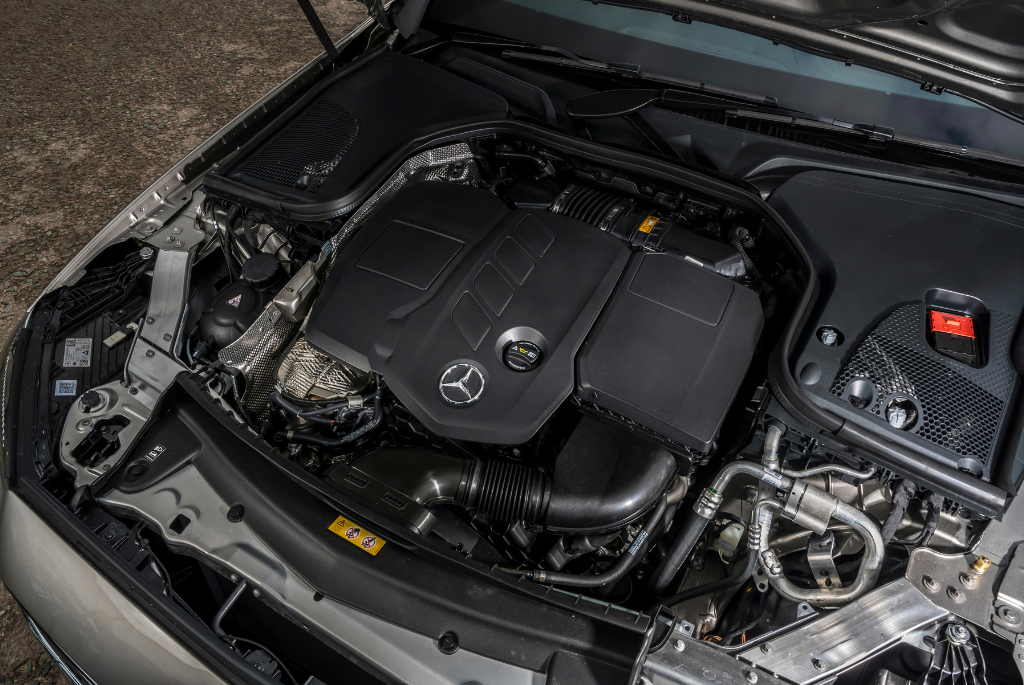
A wonder of contemporary automobile engineering, the Mercedes-E 220 d arrived in 2016 and combines lavish amenities with state-of-the-art technology and outstanding performance. Like other vehicles, the W213 E220d has its share of common issues despite its many recognitions. To make sure your car stays in top shape, we will examine the E220d engine problems in-depth in this post, going over their causes and providing workable fixes.
Common Engine Problems in Mercedes E220d

Power and efficiency are balanced by the 2.0-litre turbocharged diesel engine that powers the Mercedes W213 E220d. The performance and dependability of engines can be impacted by several problems that may develop over time.
Diesel Particulate Filter (DPF)
One of the most frequent issues with E220d engine malfunction is diesel particulate filter (DPF) issues. Although the DPF is intended to capture and lessen dangerous emissions, it may eventually clog, especially if the vehicle is often used for short trips. A warning light on the dashboard, decreased engine power, and poor fuel efficiency are all signs of a clogged DPF. Because the DPF needs high temperatures to regenerate and burn off stored soot—a process that is less likely to happen when driving in urban areas—clogging occurs. The DPF can spontaneously renew when you do long, fast drives regularly. The DPF has to be cleaned or replaced by a specialist if it gets too clogged.
Turbocharger Failure
Failure of the turbocharger is another engine-related problem. By pumping more air into the combustion chamber, the turbocharger improves engine performance, but it is prone to damage. A decrease in power, excessive exhaust smoke, and a whining sound when accelerating are signs of a failing turbocharger. Debris damage, inadequate lubrication, and oil contamination are the main reasons why turbochargers fail. To fix this problem, the defective turbocharger must be replaced, and appropriate engine maintenance—such as routine oil changes and air filter replacements—must be performed to avoid further issues.
AdBlue System Malfunctions
Malfunctions in the AdBlue system are another frequent concern. The urea solution crystallizing, sensor malfunctions, or pump problems are some of the possible problems with the AdBlue system, which lowers nitrogen oxide emissions. Engine power may be limited when the system fails, causing the vehicle to go into limp mode. In order to assist avoid issues, AdBlue should be regularly refilled and system components should be cleaned. Functionality can be restored by replacing the malfunctioning sensor or pump after a diagnostic check identifies the issue.
Also Read: Know All About Mercedes Mild Hybrid E220d Technology
E220d Engine Failure Symptoms
- Power cut.
- Shaking while inactive or at low RPMS (disappears at higher RPMS)
- Verify if the engine light is on or blinking.
- Engine Stalled.
- Exhaust gas smell.
When your Mercedes engine misfires, you can experience one or more of these symptoms, depending on the exact cause.
E220d Engine Oil Consumption Issues

There are several frequent reasons why your Mercedes and other luxury vehicles use a lot of oil. You’re not the only one who has observed that your Mercedes-Benz has been using more oil than normal. High oil consumption is a phenomenon that has become more prevalent in newer, lower-usage cars, such as luxury Japanese models from Lexus and European brands like Mercedes, even though cars typically use more oil as their mileage climbs. Higher compression ratios, forced induction (Turbocharging), lighter pistons with shorter skirts, and other engineering compromises lead to improved performance at the expense of inevitable increases in oil consumption. These are a few potential reasons why your Mercedes-Benz or other high-performance car may be using a lot of oil.
Low-Cost Oil Filters
It’s crucial to use an oil filter that can meet the specific oil requirements of your engine if you drive a European car. For instance, you should use OEM oil filters from Mahle, Mann, or Bosch for a Mercedes-Benz. Using the incorrect filter can either result in excessive oil consumption or starve your engine’s moving parts of oil, which can raise oil consumption while lowering performance and fuel efficiency. Every thousand miles or every other time you fill up at the gas station, we advise you to check your oil level.
Poor Quality Oil
The use of low-quality oil is the cause of high oil consumption. Selecting motor oil for your Mercedes that contains high levels of lubricating metals like zinc and phosphorus is crucial. Another name for these metals is ZDDP anti-wear additive.


